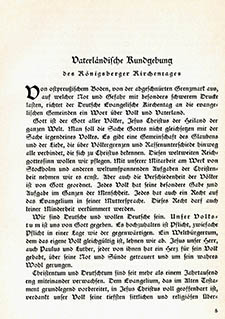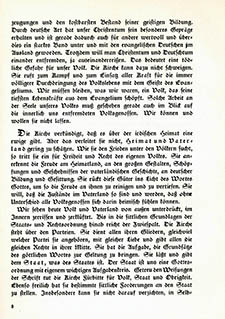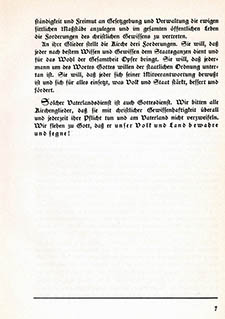Patriotic Declaration
The second official German Evangelical Church Congress was held in June of 1927 in Königsberg in East Prussia. Paul Althaus (1888–1966), a systematic theologian from the University of Erlangen, spoke on “Church and Volkstum” and Wilhelm Kahl (1849–1932), an expert in constitutional and ecclesiastical law, on “Church and Fatherland”. Theirs was a collision of two generations – Kahl was nearly eighty at the time – and two traditions of theologico-political thought about the state.
The Patriotic Declaration adopted by a large majority at the close of the Church Congress incorporated both positions and endeavored to combine conservative notions of patriotism, including the demand for loyalty to the state as commanded by the Bible and Luther, with young conservative, anti-republican notions of Volkstum.
It thus corresponded partly with the “national movement” and provoked criticism from nationalistic theologians for its cautious approbation of the Republic. They had no desire to accept the sentence: It [the church] intends everyone to be subject to the order of the state for the sake of God’s Word.
Source / title
- © Evangelische Arbeitsgemeinschaft für Kirchliche Zeitgeschichte, München, KK B 355:2



